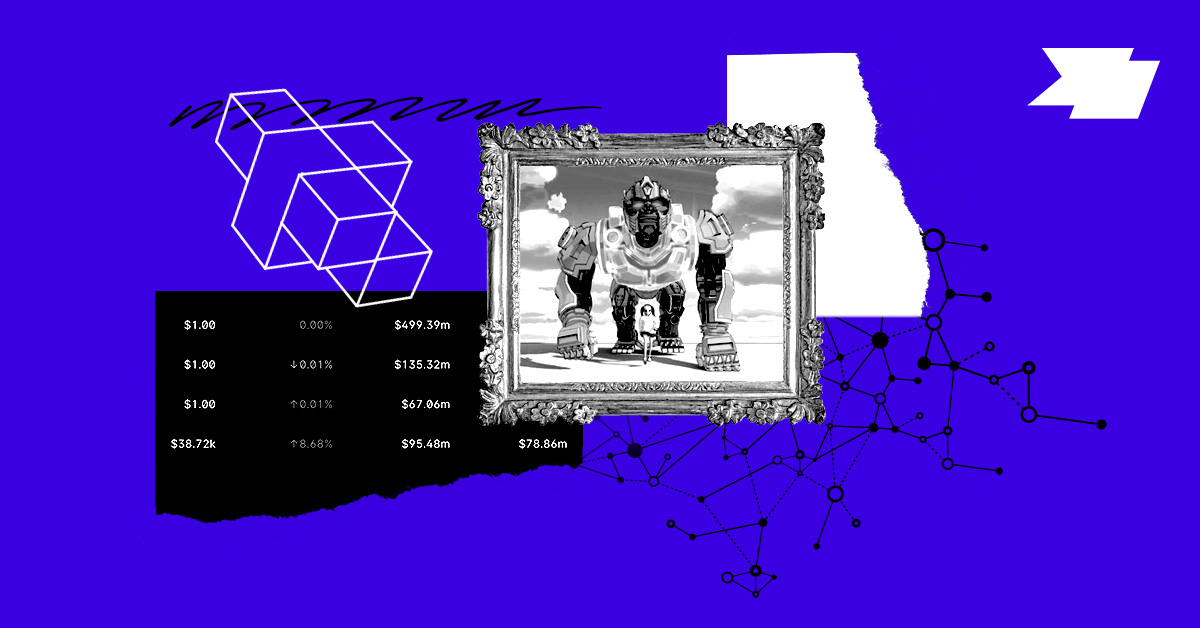By the time you think you’ve got crypto figured out, something new emerges — or an old innovation comes back to the fore. Since the last Crypto Winter thawed, we’ve experienced a DeFi Summer, scaled the ramparts of an NFT revolution, and then logged onto Discord for a DAO resurgence.
As enthusiasm over prices gives way to BUIDLing protocols and platforms, it’s a good time to pause and reflect on some of the big ideas, movements, and research areas in crypto and web3 over the last few months.
Looking ahead to the second half of 2022, here are seven pieces on Future that describe the possibilities of a decentralized future and what is needed to build it:
7 Essential Ingredients of a Metaverseby Liz Harkavy, Eddy Lazzarin and Arianna Simpson / a16z crypto
Web2 stalwart Facebook went all in on the metaverse this year, going so far as to change its name to Meta. Meanwhile, crypto-native companies are leaning in to a decentralized, open source version of the metaverse. Thus, the race is on to create the next iteration of the internet, one that’s — as Liz Harkavy, Eddy Lazzarin and Arianna Simpson put it — “more social, immersive, and far more economically sophisticated than what exists today.” The authors explain the seven pieces necessary to make that a (virtual) reality.
DAOs, A Canon by Sonal Chokshi, Zoran Basich, Guy Wollett / a16z crypto
After gestating for years, DAOs, or “decentralized autonomous organizations,” entered the public consciousness with a $40 million effort to buy a copy of the U.S. Constitution at auction. Now, they’re all the rage — even though many people aren’t sure exactly what they are, what advantages they confer, and where they go from here. Here’s the ultimate reference guide.
Decentralization for Web3 Builders: Principles, Models, Howby Miles Jennings / a16z crypto
Decentralization has been a rallying cry for web3, but there’s no one-size-fits-all model. In this piece, Miles Jennings aims to “guide web3 builders tackling what decentralization means in practice” by first providing a framework for understanding web3 systems’ technical, economic and legal design.
DeFi Gives Financial Privacy — Will Regulation Take It Away? by Eugene Volokh / UCLA
U.S. regulators and legislators are circling toward creating a more concrete set of rules for crypto companies. A frequent target has been decentralized finance because it removes intermediaries — which theoretically help de-risk the system because they are regulated. Here, Eugene Volokh warns policymakers that “banning such technologies (or requiring that they be set up in a way that does forfeit the Fourth Amendment right) would violate the Fourth Amendment privacy right.”
“Fantasy Hollywood” — Crypto and Community-Owned Charactersby Cuy Sheffield / Visa
When you buy a trading card, you don’t own the rights to the person on it. Crypto is forging a different approach. Visa Head of Crypto Cuy Sheffield argues that DAOs, NFTs and other web3 developments can “enable a new model of character development and ownership” in which communities control valuable intellectual property.
A Guide to DeSci, the Latest Web3 Movementby Sarah Hamburg / LYNX
At their core, blockchains are about disintermediation. Knowledge work, too, has intermediaries — from humble writers and editors to endowment-padding universities. Decentralized science, or DeSci, has yet to go mainstream, but the DAO movement has given scientists, researchers, and academics a new place to push progress.
The Missing Link Between Web2 and Web3: Custodyby Mahesh Vellanki / Rally, Forte
Decentralized protocols have their advantages but can be intimidating for the uninitiated, who are accustomed to web2. Here, Rally and Forte co-founder Mahesh Vellanki makes the case for middle ground in the crypto custody battle. The idea: onboarding crypto users first, then gradually moving them toward more decentralized options.
Around the web:
Cryptocurrency’s Role in the Russia-Ukraine Crisisby Aidan Arasasingham / Center for Strategic & International Studies
A concise explainer on why cryptocurrency exchanges aren’t fueling sanctions evasion.
How the Metaverse Could Be a Game-Changer for NFT Gamingby David Z Morris / CoinDesk
An opinion piece on the intersections of three major tech trends.
ImpactDAOS – The Building Block of Regen Web3by Kevin Owocki / Gitcoin
A videotaped talk on regenerative economics from the founder of Gitcoin.
Newton’s Alchemyby Packy McCormick / Not Boring
An explanation for how failure—for crypto protocols or otherwise—is valuable for scientific progress.
Soulboundby Vitalik Buterin / Ethereum
A look at non-transferable NFTs and governance rights.
What to expect from Future:
It’s impossible to predict which directions creators, developers and community members are going to take web3. As builders get to work, we’ll be covering web3’s possibilities by delving deeper into areas such as NFTs, the metaverse, DeFi, and use cases that have yet to even take shape. Moreover, we’ll detail how to participate in the ongoing transition from web2 to web3 by immersing readers in the ethos of crypto, such as decentralization and disintermediation. If you’ve got a sense of where web3’s future is heading, pitch us here.
Posted June 29, 2022
Future Editorial
Related Articles Thinking Through CC0 and IP for NFT Communities
Chase Chapman, Nuzayra Haque-Shah, Austin Hurwitz, Jeff Benson
Unbundling Digital Identity Unlocks New Ways to Play and Build
Jon Radoff
What’s After Proof of Stake for Ethereum?
Danny Ryan, Jeff Benson
What the Merge Means for Ethereum
Danny Ryan, Jeff Benson
Info Diet: a16z Crypto’s Elena Burger
Elena Burger
Join the Newsletter
Technology, innovation, and the future, as told by those building it.
Email address* Must be valid email. [email protected]
Subscribe
Thanks for signing up.
Check your inbox for a welcome note.
 JinseFinance
JinseFinance
 JinseFinance
JinseFinance Coindesk
Coindesk Coindesk
Coindesk Ledgerinsights
Ledgerinsights Bitcoinist
Bitcoinist Bitcoinist
Bitcoinist Cointelegraph
Cointelegraph Cointelegraph
Cointelegraph Bitcoinist
Bitcoinist Cointelegraph
Cointelegraph